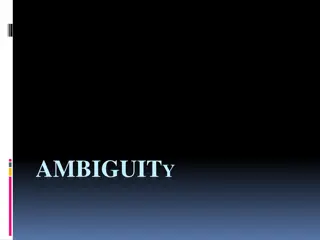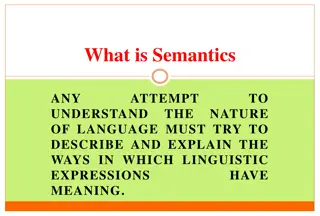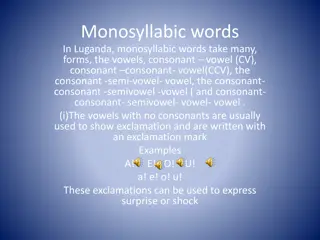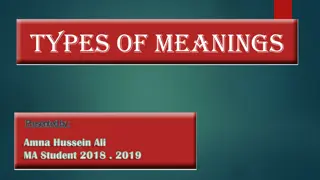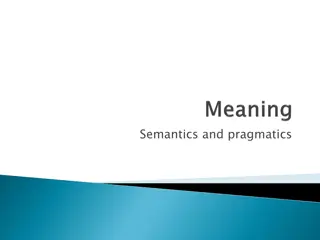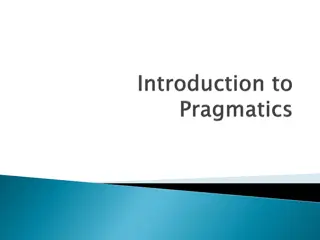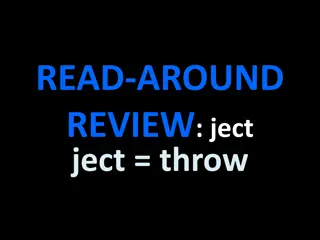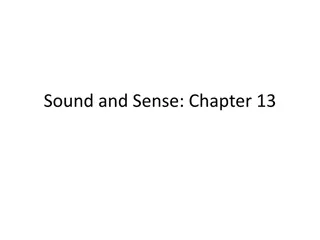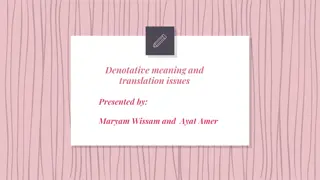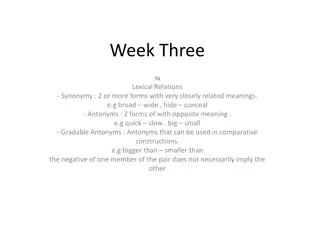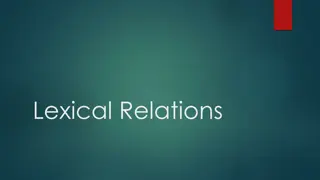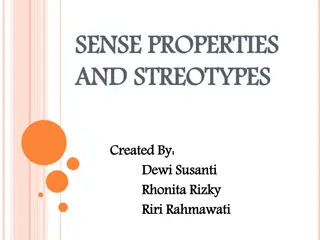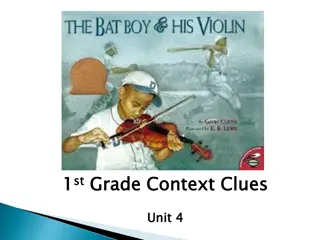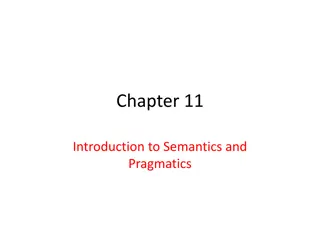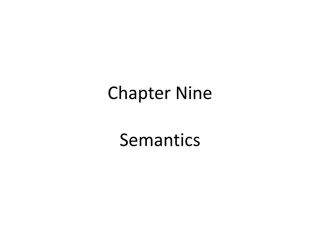Uncovering Uncommon Words and Meanings in Educational Research
Delve into the intriguing concept of "The Meaning of Liff" by Adams and Lloyd (1983), highlighting the existence of common experiences without corresponding words. Explore examples like Ardslignish, Gweek, Motspur, and Nad, shedding light on unique phenomena. Join the discourse with educator Dylan Wiliam, inviting suggestions and fostering a novel perspective on language in everyday scenarios.
Download Presentation

Please find below an Image/Link to download the presentation.
The content on the website is provided AS IS for your information and personal use only. It may not be sold, licensed, or shared on other websites without obtaining consent from the author.If you encounter any issues during the download, it is possible that the publisher has removed the file from their server.
You are allowed to download the files provided on this website for personal or commercial use, subject to the condition that they are used lawfully. All files are the property of their respective owners.
The content on the website is provided AS IS for your information and personal use only. It may not be sold, licensed, or shared on other websites without obtaining consent from the author.
E N D
Presentation Transcript
1 Liff in Educational Research Dylan Wiliam, AERA 2019 April: Toronto, Canada @dylanwiliam
The meaning of liff (Adams & Lloyd, 1983) 2 [T]here are many hundreds of common experiences, feelings, situations and even objects which we all know and recognize, but for which no words exist. On the other hand, the world is littered with thousands of spare words which spend their time doing nothing but loafing about on signposts pointing at places. These place names need to start earning their keep in everyday conversations and make a more positive contribution to society.
Examples 3 Ardslignish (adj.) The behavior of Sellotape when one is very tired Gweek (n.) A coat hanger recycled as a car aerial Motspur (n.) The fourth wheel of a supermarket cart which looks identical to the other three but renders the cart completely uncontrollable Nad (n.) The distance between a driver's outstretched fingertips and the ticket machine in an automated toll booth or car park.
4 If you have any suggestions, tweet me @dylanwiliam In the meantime
In the office 5 Camberwell (n.) The small depression provided by the manufacturer on the top of a photocopier for keeping paper clips, despite there being no known instance of its use for this purpose. Semington (n.) Name given to a copy of a one-hundred page two-sided document that contains only the odd-numbered pages. Edgebolton (n.) Descriptive of a staple that is inserted so close to the edge of the document that each page neatly detaches itself as soon as the page is turned.
In the office (2) 6 Up Sydling (v.) The act of trying to determine the orientation of a sheet of paper in a printer paper-tray for two-sided copying. Awkley (adj.) Descriptive of the sensation experienced when, looking forward to getting on with your work, a student about whom you had completely forgotten arrives at your door. Preston Gubbals (n.) Adhesive address labels that completely obliterate the most important information on the documents to which they are affixed
When reading papers 7 Drewsey (adj.) Descriptive of an abstract that contains details of what kinds of findings are contained in the paper but not what they are, thus requiring the reader to read the whole paper. Lolo (n.) A collective term for any textual device such as approaching significance or marginally significant used to suggest that a p value greater than 0.05 is somehow meaningful.
When reading papers (2) 8 Cohagen (n.) Any interpretation of an effect size as small, medium, or large on the basis of its absolute magnitude, especially one citing Cohen (1988) as support (thus proving that the cited source has not, in fact, been read).
While reading papers (3) 9 Arrey (adj.) Descriptive of a research paper that you are certain must be flawed because you disagree with its conclusions before you have read the paper. Gorus (n.) A detail in an arrey (q.v.) paper that allows you to conclude that the paper is fundamentally flawed and worthless so that you can reject its unpalatable conclusion. Yreka (n.) The feeling engendered by discovering a gorus (q.v.) especially when it is found on the first page of the paper.
While reading papers (4) 10 Nyantic (adj.) Descriptive of the feeling experienced as one nears the end of a paper without finding a gorus, meaning that the paper s unpalatable findings may have to be taken seriously.
When travelling 11 Portmahomack (n.) Any document carried on at least two out-of-town trips in the hope that you might, at some point, have the time, energy, and inclination to read it.
Peer review 12 Kearney (adj.) Descriptive of a review that at the same time suggests that the results of a a paper are both fundamentally incorrect and, at the same time, trivial and obvious. Skokie (adj.) Descriptive of a review where at least half of the references that the author is told to cite are to the reviewer s own work. Largent (adj.) Any objection to a statistically significant result from a pre-registered study on the grounds that the sample is too small (as opposed to being unrepresentative).
Writing grant proposals 13 Margaretting (v.) A collective term for techniques used to reduce a document to a pre-specified page length, including reducing margins and fonts, abbreviating words, hyphenation, and ultimately prematurely terminating any sentence that ends with one or two words on a line. Climping (v.) Removing items from a grant application in order to reduce the total budget below a specified limit. Shavington (n.) An item removed from a grant application during climping (qv.) that, once the project has begun, turns out to be essential for the successful completion of the project.
At conferences 14 Piddlehinton (n.) Name given to any attempt to curtail a five-minute conversation with someone who has intercepted you on the way to the bathroom saying that they just need to talk to you for literally thirty seconds . Frant (adj.) Descriptive of the twisted posture, furrowed brow and unfocussed vision of anyone at a conference trying to read the name badge of someone coming the other way down a corridor. Sebring (v.) When speaking to someone, the act of looking around to see if there is someone more interesting or important to talk to.
Over to you @dylanwiliam




